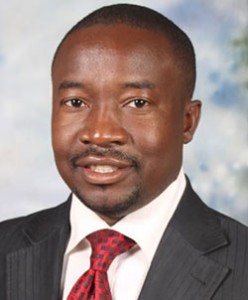The well subscribed march, called to protest poor governance, poverty and corruption, brought central Harare to a standstill.
Awe-struck observers were quick to credit the massive attendance to Tsvangirai’s charisma and tangible grass-root support.
The MDC-T, just like other opposition parties, are warming up to the formation of a loose merger to augment their chances of defeating President Robert Mugabe and his Zanu PF party in the 2018 elections.
The parties are set for some intense haggling to try and balance up their interests when talks begin ahead of the polls.
Until last Thursday, and in the eyes of many, Tsvangirai remained a weak and ambitious politician who still clinging to his illustrious past.
But the once firebrand trade unionist reminded his critics he was still a force to reckon with in local politics with a massive following.
His erstwhile allies who have since gone back on their earlier vows not to ever coalesce with a “pseudo democrat†warned at the weekend the former premier must not be distracted by mob psychology and start bringing unrealistic demands to the negotiating table.
“The big brother mentality has gotten us to this point,†said PDP spokesperson Jacob Mafume in an interview with NewZimbabwe.com.
“We need the good Lord to give us wisdom at this critical juncture; that messianic complex personified by images of Jesus riding into Jerusalem did not quite go to script at the end of it all,†he said.
“What we need is to run a complex election machinery which will utilise the level of discontent within Zimbabwe against Zanu PF.â€
Mafume said as a united MDC, they had been gathering crowds as big as the one that thronged the Thursday march but the party was found wanting when it came to what to do with the numbers.
“We need to keep the eye on the ball and not easily be distracted by self- fulfilling activities.â€
The PDP is led by former MDC-T secretary general Tendai Biti who masterminded the 2014 MDC-T split, the second since the main opposition’s formation 1999.
Similarly, Professor Welshman Ncube’s MDC said Tsvangirai should not drag issues about his massive following to the negotiating table.
“We appreciate and respect the MDC-T exercised its democratic and constitutional right to demonstrate against bad governance in the country,†said party spokesperson, Kurauone Chihwayi.
“It is our hope however that the demonstration was a genuine protest against misgovernance which has led to the suffering of millions and not egocentric flexing of muscles by one man because then it would be pointless and will not change the livelihoods of the suffering masses.
“It would be a misnomer to say the demonstration gives Morgan Tsvangirai a head-start.
“A coalition, in our view, should be on the understanding that no political party currently is capable of dislodging Zanu PF and coming up with meaningful solutions to fixing Zimbabwe when Zanu PF is gone.
“It should not be about who will lead but about coming together to bring meaningful change in Zimbabwe.â€
The MDC-T is the only opposition party with a higher number of MPs in parliament.
A 2008 attempt by the MDC-T and its splinter group led by Ncube fell through when the now autonomous parties failed to agree on the distribution of seats to contest for in the elections.
There are still strong perceptions the leader of the envisaged coalition should emerge from either the MDC-T or Joice Mujuru’s ZimPF which is regarded as having a strong grassroot base.
Although no talks have formally been confirmed yet, let alone a framework for such negotiations, it is strongly felt the major parties could use their popularity in the negotiations to tilt the outcome of the talks in their favour.
Post published in: Featured


